- Casey
- September 20, 2023
- 2:41 am

John Doe
Answered on 2:41 am
400G-FR4 / 400G-LR4: These transceivers use duplex LC connectors. The FR4 and LR4 transceivers use WDM (wavelength division multiplexing) to allow the use of two fibers instead of eight.

400G-DR4 / 400G-XDR4 / 400G-PLR4: These transceivers use a MPO-12 connector since the DR4 standard splits the 400Gbps signal into four parallel 100Gbps channels.

400G-BIDI (400G-SRBD): Bi-directional transceivers typically use LC connectors as they work by simultaneously transmitting and receiving data over one fiber.

400G-SR8: This transceiver uses MPO-16 connectors, as the SR8 standard splits the 400Gbps signal into eight parallel 50Gbps channels.

400G-2FR4: This transceiver would typically use duplex LC connectors. It’s a two-lane 400GBASE-FR4 variant that uses two wavelengths on a single fiber, enabling duplex LC operation.

People Also Ask
Understanding Switch Ports: A Comprehensive Guide to VLAN Assignments and Switch Port Configurations
Throughout history, communication and connection have greatly evolved. Today, it can be done in mere seconds all throughout the globe. Switch ports are a fundamental part of global communication. If configured properly, canals of information, including devices, can be organized into clusters, which reduces response time tremendously. To maximize efficiency,
The Ultimate Guide to Choosing a 4 Port PoE Switch
The impact of well-chosen 4-Port Power over Ethernet (PoE) switches on the efficiencies and capabilities of a network cannot be overstated. Be it in setting up a home office, or small business network, or administering surveillance systems, having a dependable PoE switch to supply data and power to devices is
800G Ethernet: A New Standard in Networking
With the development of innovative technologies such as Super Ethernet and high-speed data centers, the network industry’s demand for faster, more efficient and scalable solutions has also grown rapidly. Against this backdrop, 800G Ethernet has emerged as a transformative technology that can significantly increase bandwidth and improve energy efficiency. It
Understanding the Differences Between Layer 2 and Layer 3 Switches: A Comprehensive Guide
Modern networks are becoming increasingly complex and selecting suitable networking equipment has become crucial. One of the most foundational decisions network engineers have to make is whether to implement Layer 2 or Layer 3 switches. Each switch type has its advantages, technical capabilities, and applications tailored for particular network environments.
NVIDIA’s Next-Generation Accelerated Computing Cooling Technology
The Data Center Revolution of the AI Era The deep integration of artificial intelligence, accelerated computing, and data centers is ushering in what may be termed the third scientific revolution. Modern AI models are growing in complexity at an exponential rate, demanding computing power increases by several orders of magnitude
Discover the Best 8-Port Gigabit Ethernet Switch for Your Network Needs
Whether for personal or professional use, the Internet has become essential in our advanced global society. An 8-port Ethernet switch enables gigabit-level throughput necessary for a small office or home environment. This article seeks to identify the vital features of switches that provide optimal performance based on your needs. Crucially,
Related Articles
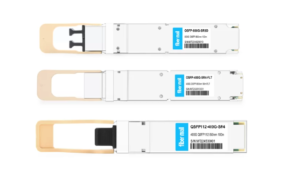
800G SR8 and 400G SR4 Optical Transceiver Modules Compatibility and Interconnection Test Report
Version Change Log Writer V0 Sample Test Cassie Test Purpose Test Objects:800G OSFP SR8/400G OSFP SR4/400G Q112 SR4. By conducting corresponding tests, the test parameters meet the relevant industry standards, and the test modules can be normally used for Nvidia (Mellanox) MQM9790 switch, Nvidia (Mellanox) ConnectX-7 network card and Nvidia (Mellanox) BlueField-3, laying a foundation for
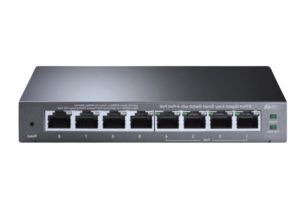
Understanding Switch Ports: A Comprehensive Guide to VLAN Assignments and Switch Port Configurations
Throughout history, communication and connection have greatly evolved. Today, it can be done in mere seconds all throughout the globe. Switch ports are a fundamental part of global communication. If configured properly, canals of information, including devices, can be organized into clusters, which reduces response time tremendously. To maximize efficiency,
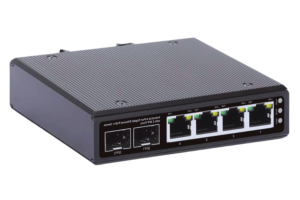
The Ultimate Guide to Choosing a 4 Port PoE Switch
The impact of well-chosen 4-Port Power over Ethernet (PoE) switches on the efficiencies and capabilities of a network cannot be overstated. Be it in setting up a home office, or small business network, or administering surveillance systems, having a dependable PoE switch to supply data and power to devices is

800G Ethernet: A New Standard in Networking
With the development of innovative technologies such as Super Ethernet and high-speed data centers, the network industry’s demand for faster, more efficient and scalable solutions has also grown rapidly. Against this backdrop, 800G Ethernet has emerged as a transformative technology that can significantly increase bandwidth and improve energy efficiency. It
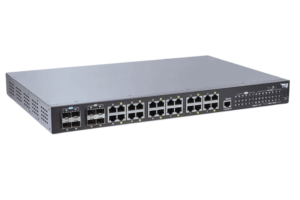
Understanding the Differences Between Layer 2 and Layer 3 Switches: A Comprehensive Guide
Modern networks are becoming increasingly complex and selecting suitable networking equipment has become crucial. One of the most foundational decisions network engineers have to make is whether to implement Layer 2 or Layer 3 switches. Each switch type has its advantages, technical capabilities, and applications tailored for particular network environments.
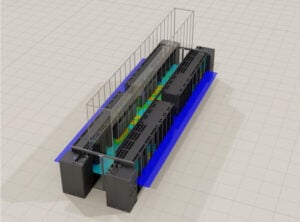
NVIDIA’s Next-Generation Accelerated Computing Cooling Technology
The Data Center Revolution of the AI Era The deep integration of artificial intelligence, accelerated computing, and data centers is ushering in what may be termed the third scientific revolution. Modern AI models are growing in complexity at an exponential rate, demanding computing power increases by several orders of magnitude
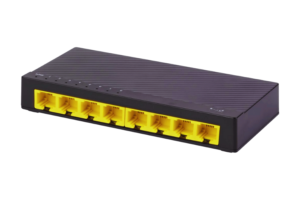
Discover the Best 8-Port Gigabit Ethernet Switch for Your Network Needs
Whether for personal or professional use, the Internet has become essential in our advanced global society. An 8-port Ethernet switch enables gigabit-level throughput necessary for a small office or home environment. This article seeks to identify the vital features of switches that provide optimal performance based on your needs. Crucially,
Related posts:
- If the Server’s Module is OSFP and the Switch’s is QSFP112, can it be Linked by Cables to Connect Data?
- Can I Plug an OSFP Module into a QSFP-DD Port, or a QSFP-DD Module into an OSFP Port?
- What is the Difference Between 400G-BIDI, 400G-SRBD and 400G-SR4.2?
- What are the Pros and Cons of Using OSFPs or QSFP-DDs?
